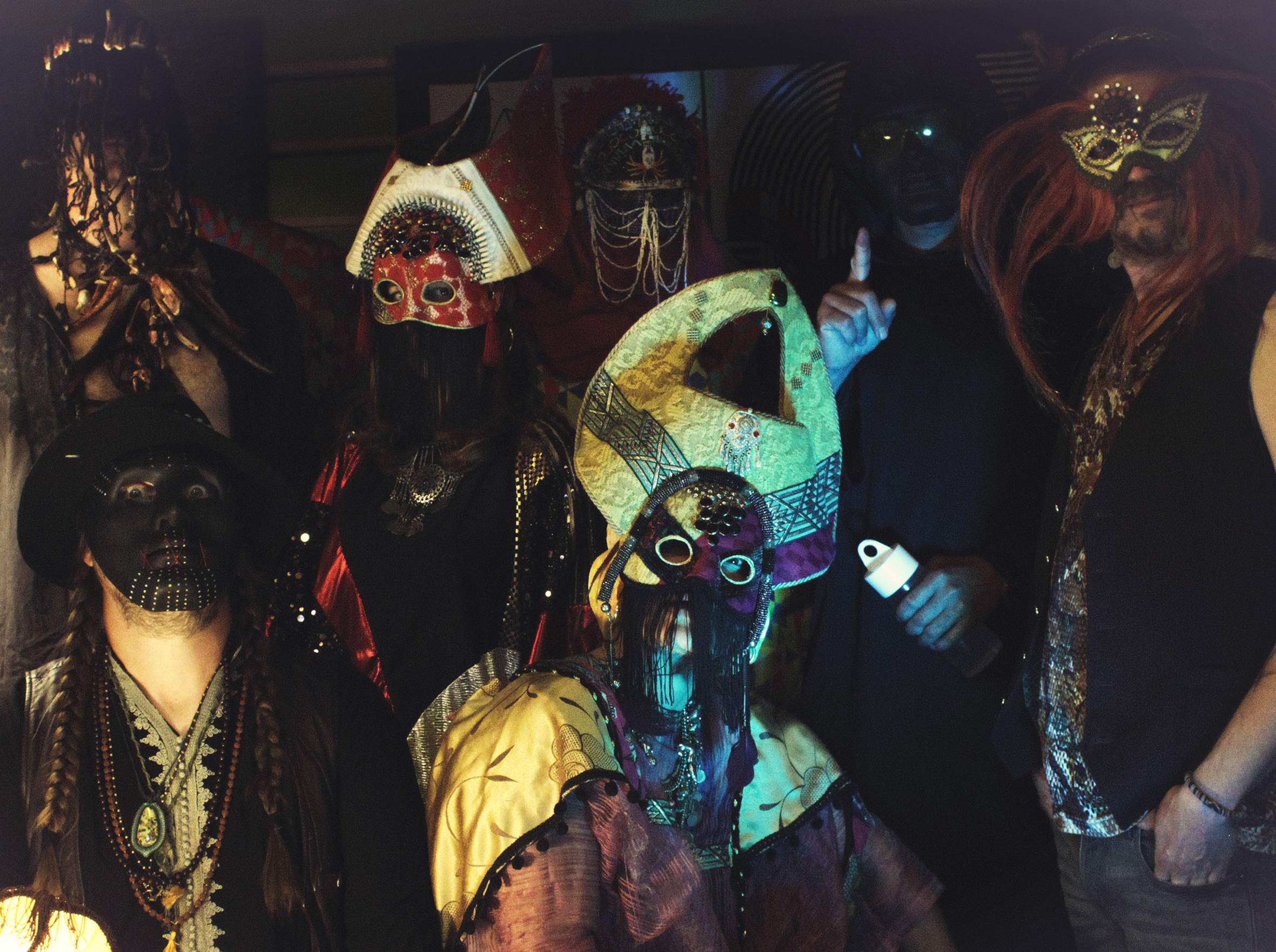Goat | Interview | The Endless Cycle of Goat’s New Album
The Swedish collective Goat is back with their latest self-titled album, a captivating sonic journey that highlights their distinctive fusion of psychedelic rock, tribal rhythms, and an eclectic mix of influences.
The album is intricately woven with the symbolism of the Ouroboros—the iconic image of a snake or dragon eating its own tail—evoking the endless cycles of death and rebirth that characterize life on this planet. For some, the Ouroboros represents the brutality of nature, while for those of a Gnostic disposition, it embodies the duality of the divine and earthly within mankind. This powerful imagery looms large in Goat’s world, marking yet another adventure that transcends the boundaries of reality.
With this new release, Goat invites listeners on a mesmerizing journey that intertwines their eclectic influences, creating an atmosphere that feels both familiar and utterly fresh. Their signature blend of psychedelic and tribal rhythms reflects a transformation that mirrors the ancient symbolism of the Ouroboros itself.
As they prepare for their UK tour, excitement surrounding the album is palpable. In the words of Brad Dourif’s character Hazel Moates in the 1979 movie Wiseblood, “Where you come from is gone; where you thought you were going weren’t never there. And where you are ain’t no good unless you can get away from it.” In Goat’s eternal now of renewal and revelation, there’s never been a more potent means of escape.
Goat will be hitting the UK for their 2024 tour with the following dates:
24 October – London, Troxy
25 October – Bristol, O2 Academy
26 October – Manchester, Academy 1
14 November – Norwich, UEA
15 November – Oxford, O2 Academy
16 November – Nottingham, Rock City
Read on for our conversation with Goat, where they share insights into their artistic journey and the themes that shaped Ouroboros.
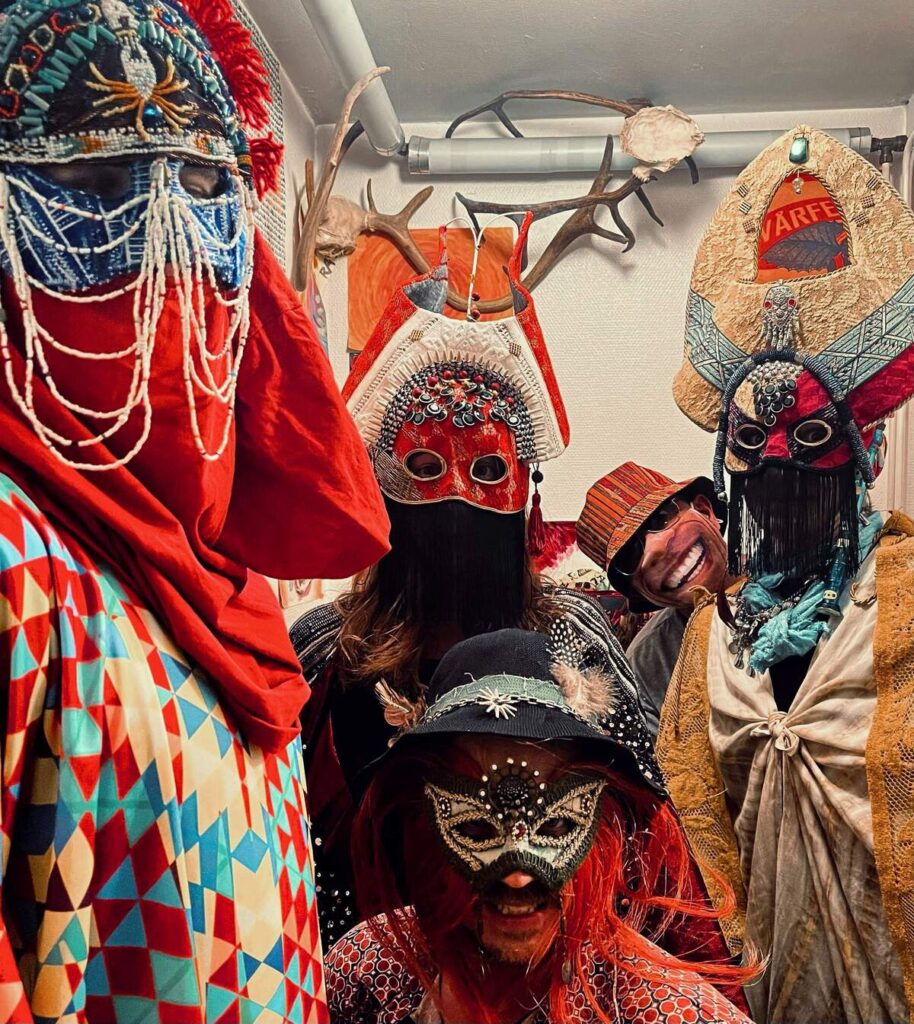
“The cycles and transformation of life”
The Ouroboros imagery is rich with symbolism, representing endless cycles and transformation. How does this concept influence the themes and sounds of your new album? Can you share how this symbol inspired specific tracks or the overall concept of the record?
Prince Pepe: The Ouroboros is an old symbol that has many meanings. But for us, it mainly represents exactly what you mentioned: the cycles and transformation of life. The song on the new album that has that name is about how those processes evolve and refine the soul. It’s a simple alchemic lyric about finding your inner gold to move forward, but your process is just a small piece of larger circles that all strive for the best possible transformations. Be aware of the shared reality. This new album has lyrically an even greater focus on the spiritual philosophy within Goat.
‘One More Death’ and ‘Goatbrain’ seem to capture that quintessential Goat energy with their funk and fuzz. What’s the process behind creating these groove-heavy tracks?
I can’t give a good answer to this question, simply because you seem to assume that there is a conscious process behind these tracks or our development of our sound. But there simply isn’t. That’s why my answer can only be that we do what we want to do without thinking that much about it. It becomes what it becomes, and the only conscious decision is to not try and control it. The result might sound like something very planned, maybe; I don’t know. But it just isn’t. The balance you talk about may be there just by itself. All I know is that we don’t try to maintain or explore anything deliberately.
With ‘Fool’s Journey’ blending free jazz and shamanic overtones, how do you approach integrating such diverse influences into a cohesive track?
I have to answer a bit similarly to the previous question. Both ecstatic celebration and introspection are part of us—and all human beings, I guess. So both states of mind channel into our music on different occasions. Are the influences you mention really so diverse? Maybe, if you look at it from a different angle, they might not be so far from each other. All in all, it’s the same here; we don’t think about it and instead just do stuff.
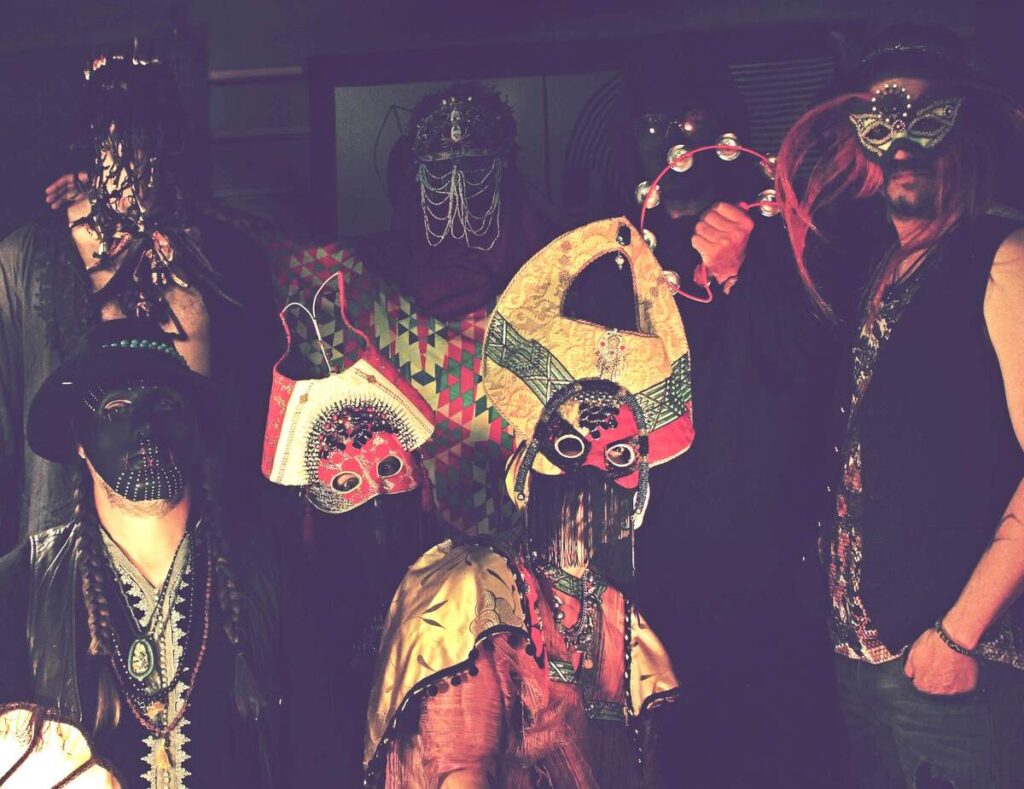
‘Frisco Beaver’ might be a sequel to ‘Disco Fever.’ How do you see the evolution of your sound from ‘World Music’ to this track?
Here, I have to contradict myself regarding what I have said so far, actually. That track comes from our love to play the Disco song live, but we are also tired of it because we always do that. So instead, we created a song that is like a twin, so we can keep on playing the song but at the same time not, ha ha!
Your latest album showcases an intriguing mix of influences, ranging from hip hop to breakbeat rhythms. How do you seamlessly blend these elements to create a sound that remains true to the essence of Goat?
We love music, and we have all listened to a lot of music. But as I said before, we have no plan or method of merging anything. We do what feels right and fun to us, and within that lies our sound. It becomes authentic because the way we do it is authentic, I think. It is really just our honest way of being creative. We never discuss our music in these terms. I think that is how most artists work.
In the context of your album, the idea of renewal and revelation seems central. Can you talk about any personal or collective experiences that shaped this theme and how it resonates with your lives outside of music?
I personally have had profound and strong transformative experiences with the Tarot. It opened up closed doors for me and showed me through its spiritual imagery that the things I have learned and understood with my mind were true. You can believe or sense how everything connects, but by training your intuition, you can get those rare occasions when you actually feel that you get it with every cell in your body. We all in the group have had experiences like this that confirm that the philosophy of Goat is real. As everyone knows, you can have these experiences using drugs. But you don’t need them, actually. There are other and better ways. Music, art, and nature are the best and most consistent ways. Still, in life, you sometimes find these confirmations of a common soul, but is that enough to live happily ever after? Have you reached enlightenment? Of course not. But it can be enough to understand that you need to evolve through life and do what your soul tells you it needs to do. That is how you take your intended small role in this world and in larger evolutions than your own.
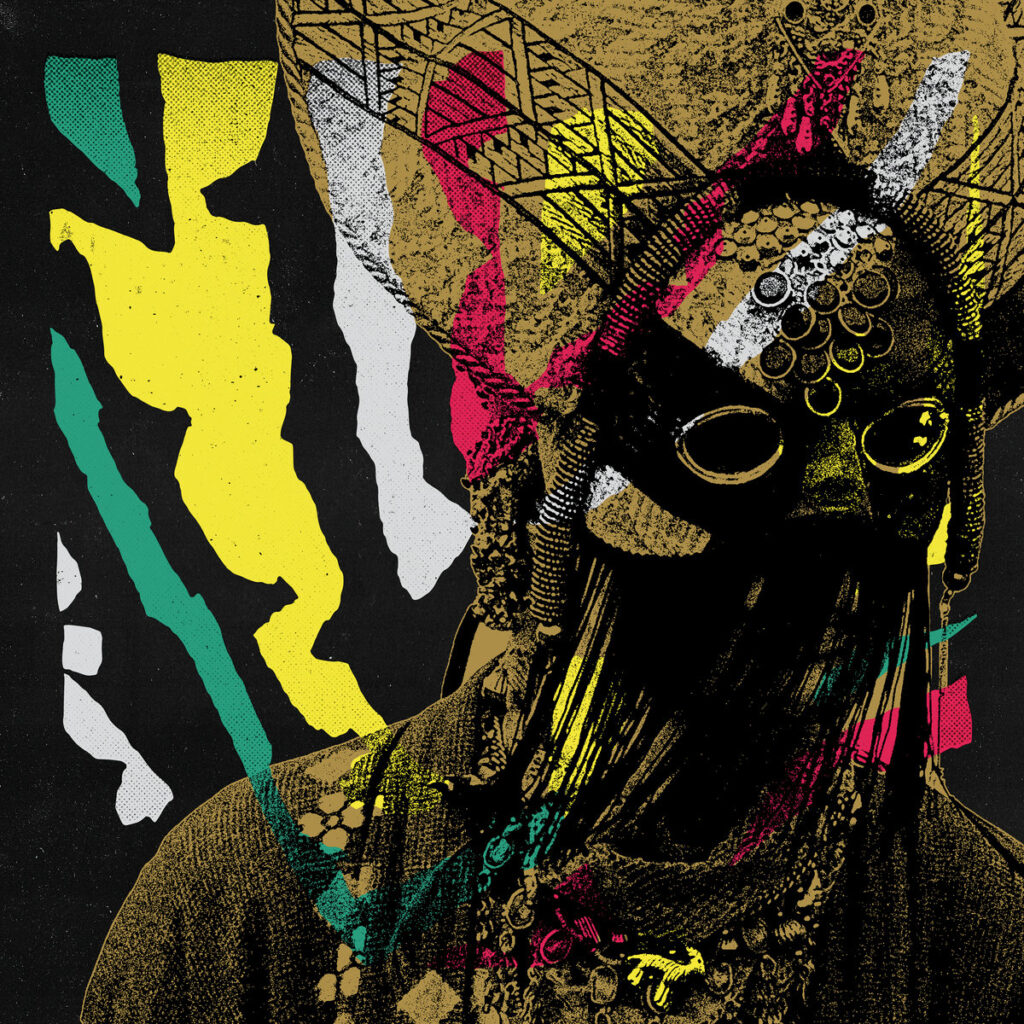
With your UK tour coming up, how do you plan to translate the essence of “Ouroboros” into your stage show?
Sure! Some surprises will be coming up. But why ruin surprises?
The track ‘Zombie’ is a ceremonial throwdown with a hip hop influence.
Well, the foundation of the track is a boom-bap beat. So there you have the obvious. I don’t see anything strange with it. Sounds like a Goat track to me, even though it’s not drums played by any of us. It feels refreshing to me.
With the album’s release coinciding with your tour, how do you approach the balance between showcasing new material and keeping the energy and excitement of older material alive?
We don’t go anywhere with the attitude to just play for ourselves. That would be arrogant, and we could stay in the studio. But we are not a karaoke band either. We want to play new stuff, so we will put emphasis on this new album. But people may want to hear songs from other albums as well, so I think we will do that too. Some we never get tired of either, like “Goatfuzz” or “Under No Nation.” But on this UK trip, we are not going to play the same “older” songs as last time we toured the UK.
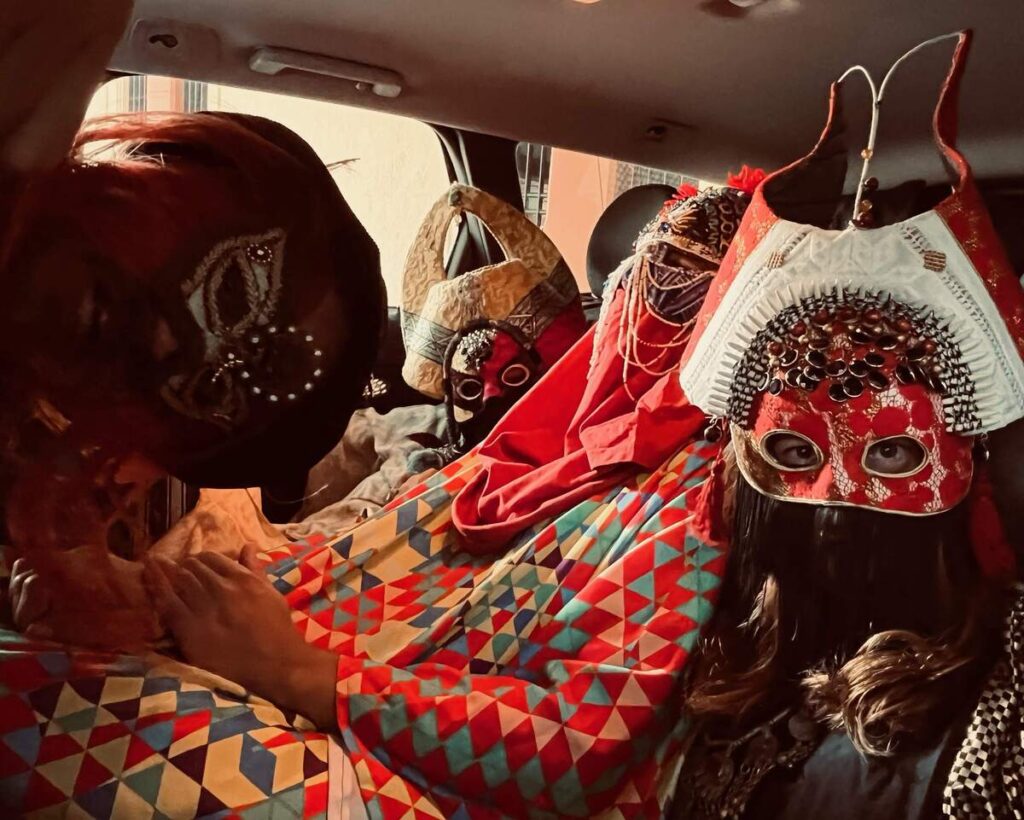
“We don’t know what we want to do”
Brad Dourif’s quote from Wiseblood reflects a sense of disillusionment and searching. How do you relate to this perspective in the context of your music and the journey you’ve taken as a band?
Since we always work without much planning, definitely not in the creation of the music, but also not in what to do next and so on, we are constantly a bit confused. Now it seems like there is a very big interest in these shows; we had no idea it would be. But we are very happy about it. From our perspective, we don’t know what we want to do or have the opportunity to do in a year or so. It has been like this from the beginning, so that quote sums this band up. We try to take it as it comes and be happy where we are at the moment. But there is no doubt that we are moving forward somehow. But that could look like backward to someone else… Ha ha!
Do you ever worry that your quest for the next big thing might leave some fans behind?
We are not on such a quest at all. But we might change from time to time, or the music can take different turns. If you like it, you do, and if not, you don’t. We can’t take that into any consideration at all, I’m afraid.
How does this album fit into the larger narrative of Goat?
Don’t know yet. Too early to say. It’s one of our finest and most spiritual works so far, I think. Ask me again in 3-4 years.
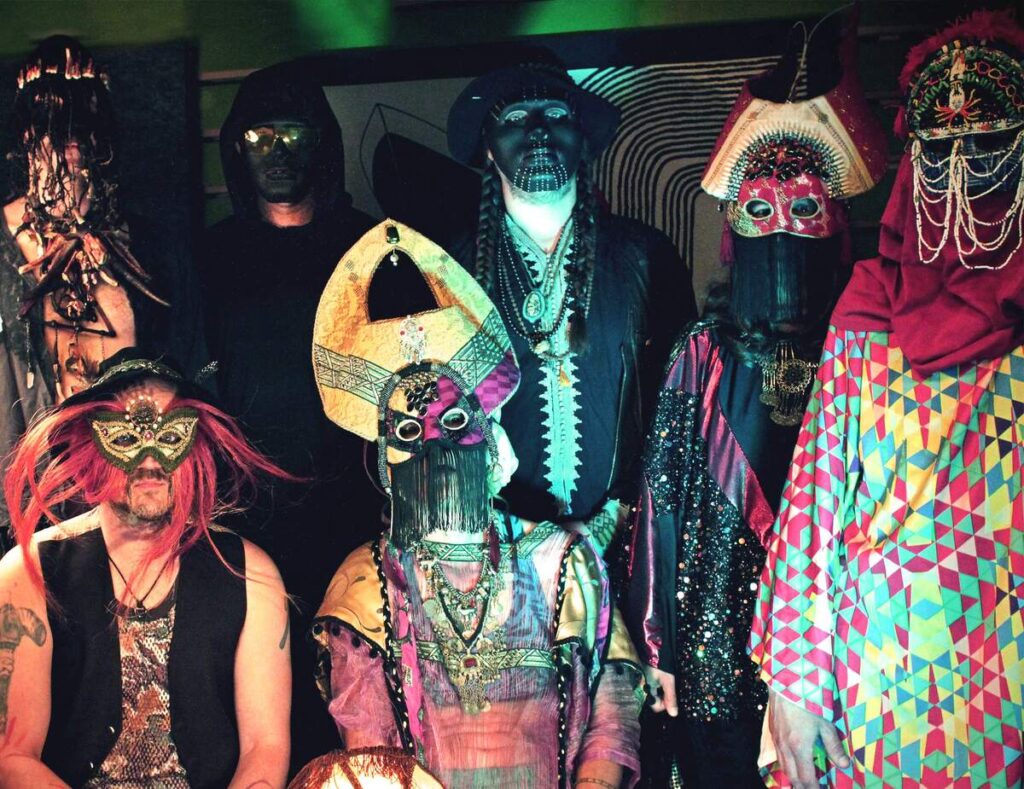
What are some of the latest records you are currently spinning?
At the moment, I’m looking backward and spinning stuff I already know. Don’t know why at all, but I have to follow that instinct or need. Maybe it’s because we just finished a creative period with this album. So I’m spinning ‘Trout Mask’ again.
Klemen Breznikar
Goat Facebook / Instagram / Twitter / Bandcamp
Rocket Recordings Official Website / Facebook / Instagram / Twitter / Bandcamp / SoundCloud
GOAT interview with Goatman

